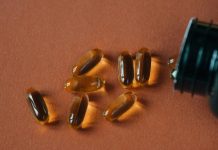
A team of scientists from the University of Sydney recently conducted a study and found that vitamin B3, also known as nicotinamide, may be able to reduce the risk of skin cancer in people who are at a higher risk of developing it.
Skin cancer is the most common type of cancer, with melanoma being the most dangerous kind that can spread to other parts of the body.
Previous research has shown that nicotinamide has protective effects against the damage caused by ultraviolet (UV) radiation from the sun, which is one of the main causes of skin cancer.
Nicotinamide is a water-soluble form of vitamin B3, which means it can dissolve in water and can be easily absorbed by the body.
It is found naturally in foods such as fish, poultry, nuts, legumes, eggs, and cereal grains.
In the current study, the researchers examined 386 people who had previously had at least two nonmelanoma skin cancers within the past five years.
The participants were randomly divided into two groups, with one group receiving 500 mg of vitamin B3 twice daily and the other group receiving a placebo (a pill with no active ingredients) for 12 months.
The participants were checked by dermatologists every three months for 18 months.
The team found that after 12 months, the risk of new nonmelanoma skin cancers was lower by 23% in the vitamin B3 group compared to the placebo group.
Similar differences were found between the vitamin B3 group and the placebo group with new basal-cell carcinomas and new squamous-cell carcinomas, which are both types of nonmelanoma skin cancer.
The researchers also found that the number of actinic keratoses, a type of skin lesion that can develop into skin cancer, was lower in the vitamin B3 group than in the placebo group at various time points throughout the study.
The team concluded that taking oral vitamin B3 is safe and effective in reducing the risk of developing new nonmelanoma skin cancers in people who are at a higher risk of developing them.
However, it is important to note that taking high doses of vitamin B3 can lead to serious side effects, so it is always best to speak with a healthcare professional before taking any supplements.
Additionally, it is important to remember that the best way to prevent skin cancer is to protect your skin from the sun by wearing protective clothing, staying in the shade, and using sunscreen with at least SPF 30.
How to prevent skin cancer
here are several ways to help prevent skin cancer:
Limit sun exposure: Avoid spending too much time in the sun, especially during peak hours between 10 a.m. and 4 p.m. If you do go outside, wear protective clothing and seek shade whenever possible.
Wear protective clothing: Wear a hat, long-sleeved shirt, and long pants to protect your skin from the sun’s harmful rays.
Use sunscreen: Apply a broad-spectrum sunscreen with an SPF of at least 30 to any exposed skin. Reapply every two hours or after swimming or sweating.
Avoid tanning beds: Tanning beds expose your skin to harmful UV radiation, which can increase your risk of skin cancer.
Check your skin regularly: Examine your skin regularly for any unusual moles or changes in existing moles. See a dermatologist if you notice any changes.
Live a healthy lifestyle: Eating a healthy diet, staying physically active, and avoiding tobacco use can help reduce your risk of skin cancer.
If you care about skin health, please read studies about eating fish linked to higher risk of skin cancer, and common high blood pressure meds may increase risk of inflammatory skin disease.
If you care about skin cancer, please read studies that low-carb diet could increase overall cancer risk, and vitamin D supplements strongly reduces cancer death.
The research was published in The New England Journal of Medicine and conducted by Andrew C Chen et al.
Copyright © 2023 Knowridge Science Report. All rights reserved.



